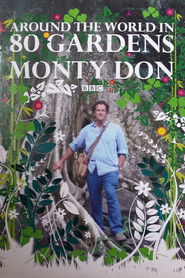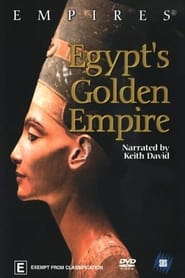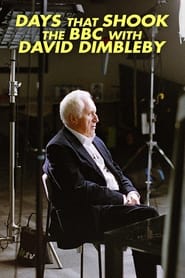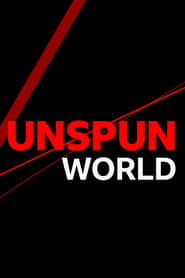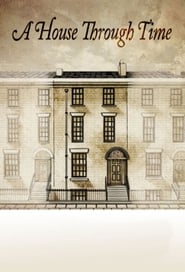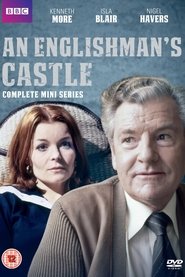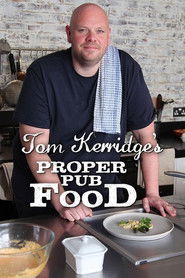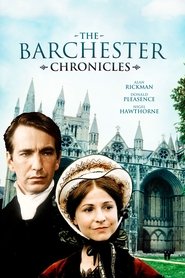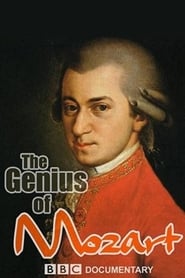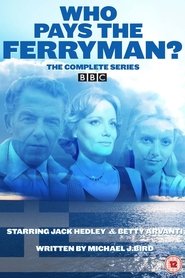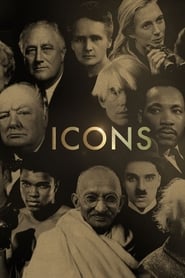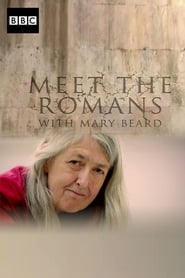Bbc Two TV Series - Page 27
-
Around the World in 80 Gardens
2008
Around the World in 80 Gardens was a television series of 10 programmes in which British gardener and broadcaster Monty Don visited 80 of the world's most celebrated gardens. The series was filmed over a period of 18 months and was first broadcast on BBC Two at 9.00pm on successive Sundays from 27 January to 30 March 2008. A book based on the series was also published. The title of the series was a reference to Jules Verne's novel Around the World in Eighty Days and is a spiritual successor to Dan Cruickshank's earlier television series, Around the World in 80 Treasures, first broadcast in 2005. -
Egypt's Golden Empire
2001
star 7This three-part special tells the story of the Egyptian empire from its beginning in 1560 B.C. to its collapse in 1080 B.C. Interviews with scholars and dramatic re-creations bring the story to life. -
Days That Shook the BBC with David Dimbleby
2022
David Dimbleby goes behind the scenes to investigate major controversies that have affected the BBC and its viewers over the last sixty years. -
Unspun World with John Simpson
2022
Unspun World provides an unvarnished version of the week's major global news stories - reliable, honest and essential viewing with the BBC's world affairs editor John Simpson. -
See Hear
1981
See Hear
1981
The programme focuses on the British and the worldwide deaf community and covers a broad range of topics from areas such as education, deaf people's rights, technology and language. The programme is presented entirely in BSL and is broadcast with voice-over and subtitles in English throughout the programme. -
Escape to the Continent
2014
star 7Following Brits considering a move abroad, as they take the opportunity to test drive what an alternative life could look like in a totally new, sunny clime. -
The Life and Loves of a She-Devil
1986
star 6.8Ruth has everything. A large, warty body, a standard house in the suburbs, two whiney children, a dog, a cat and a guinea pig. She also has Bobo, her unfaithful accountant husband who resents her very existence. Bobo wants, and is wanted by, Mary Fisher. Mary Fisher lives in a lighthouse by the sea and writes about love. When Bobo leaves Ruth for the novelist, she decides that Mary Fisher doesn't know the first thing about love. Ruth intends to teach her. -
A House Through Time
2018
star 7.5David Olusoga tells the story of those who lived in one house, from the time it was built until now. Searching through city archives, scouring records, and tracking down their living descendants, presenter David Olusoga tells the untold stories of the people who once lived in the house and gains a unique insight into the making of modern Britain. -
Funny Festival Live
2021
Funny Festival Live
2021
Liven up lockdown with some much-needed laughs. Stand-up legends including Jo Brand, Nabil Abdulrashid and Sara Pascoe introduce the best new comedy talent. -
Codename
1970
Codename
1970
Codename, which premiered in April 1970, was about the secretive MI17 Spy Organisation of the same name based in the residential hall of a Cambridge College. Eventually the series attained a more international flavour, although its base was always in Great Britain. Primarily Codename dealt with the themes of espionage and counter-espionage at the time of the Cold War of the sixties. Its cast contained many of Great Britain's most versatile and talented actors. -
An Englishman's Castle
1978
star 5Set in an alternative 1970s where Germany won the Second World War and occupied Europe, a soap opera called 'An Englishman's Castle' plays out through writer Peter Ingram. -
Restoration
2003
Restoration
2003
Restoration, Restoration, Restoration is a set of BBC television series where viewers decided on which listed building that was in immediate need of remedial works was to win a grant from Heritage Lottery Fund. It first aired in 2003. The host of all 3 series is Griff Rhys Jones, whilst investigating each building in the heats are the show's resident "ruin detectives", Marianne Suhr and Ptolemy Dean. -
Tom Kerridge's Proper Pub Food
2013
Tom Kerridge, famed for cooking food that has won him two Michelin stars in his own pub, shows how to cook dishes at home inspired by British pub classics. -
The Barchester Chronicles
1982
star 7Against the sumptuous background of Peterborough Cathedral and its environs, one is carried into Trollope's world of the intriguing machinations of the clerical establishment of Barchester. Backed by the authenticity of the period detail, the portrayal of all the characters accurately conveys the whole range of human emotions within the stories. -
Manchild
2002
star 4Stockbroker Terry, art expert Patrick, orthodontist James and decking supremo Gary have been friends since their schooldays. Now, having all reached the age of 50, they are intent on reliving the freedom of their youth, buying hip new clothes and dating beautiful younger women, but despite their best efforts, the concerns of middle-age still catch up with them. -
The Genius of Mozart
2004
The Genius of Mozart
2004
Looks at Mozart's extraordinary short life and revolutionary music through a distinctive mix of costume drama and documentary. -
Who Pays the Ferryman?
1977
star 6.4Who Pays the Ferryman? was a television series produced by the BBC in 1977. The title of the series refers to the ancient religious belief and mythology of Charon the ferryman to Hades. In ancient times it was the custom to place coins in or on the mouth of the deceased before cremation so that the deceased could pay the ferryman to go to Hades. The eight-part series was written by Michael J. Bird. -
Icons
2019
star 8Exploring the achievements of the greatest figures of the 20th century. The public vote for their favourites, ultimately deciding who is the greatest icon of them all. -
Reel Stories
2018
star 7Dermot O'Leary relives moments from the lives of some of the biggest stars in music and film. Together they view both seen and unseen footage from the star's career. -
Meet the Romans with Mary Beard
2012
star 7.5Professor Mary Beard looks beyond the stories of emperors, armies, guts and gore to meet the everyday people at the heart of Ancient Rome's vast empire.
